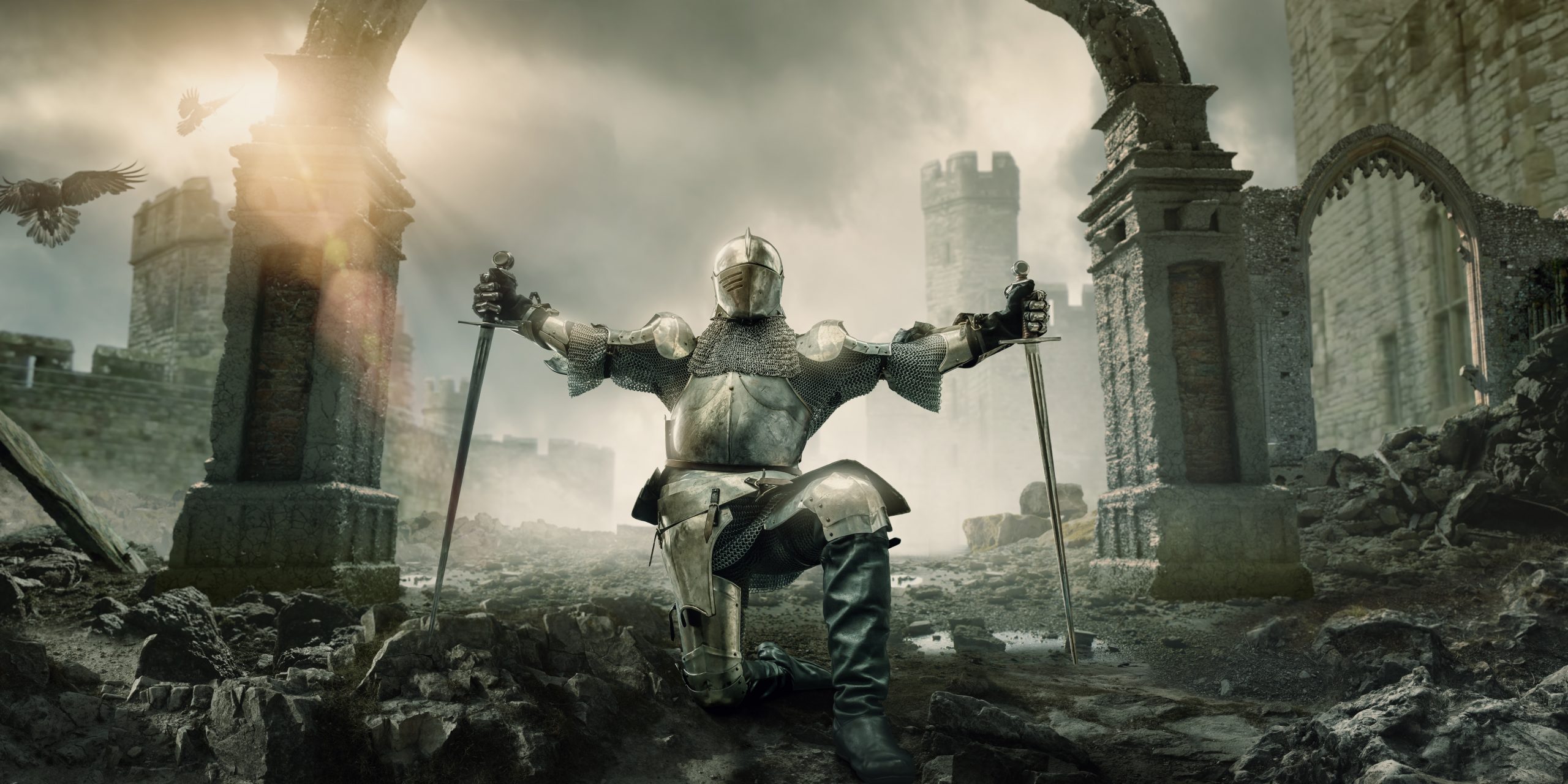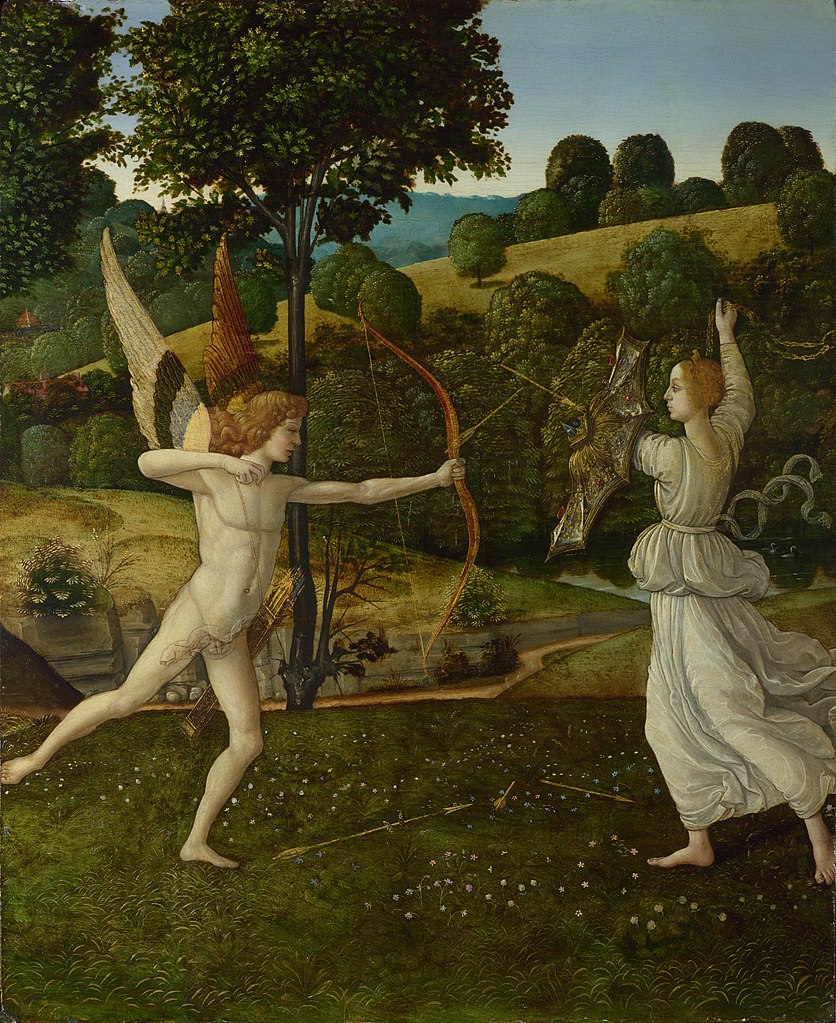To bring down the ruling classes, attack their spiritual weaknesses.
What’s a Man to Do?

The War on Terror is over, but the need is greater than ever for courageous American men.
“I was stupid then. I was too much of a coward to believe there was anything worth fighting for.”
It was an unusually candid conversation to have while in a dental chair. My dentist was explaining how he had ended up in the Northern Virginia suburbs. The Vietnam War had raged while he was a dental school student in a neighboring state. He had witnessed student protestors tear gassed by police, and, like many young people of that generation, he had sympathized with their cause.
He knew my father, by then already buried at Arlington National Cemetery, had been drafted into service as a medic in the U.S. Army. “I should have signed up and served my country like you and your dad, with the guys who didn’t have a choice,” he muttered.
He’s not alone among men of that generation in changing their opinions on Vietnam as the years (and decades) went by. In a 2008 essay in New Criterion, former civil rights activist and conservative publisher Peter Collier writes of how ’60s firebrand Tom Hayden, fresh from Communist North Vietnam, brought him back a metal comb made from a downed U.S. aircraft.
When Hayden gave it to me the comb seemed a jaunty symbol of an invincible peasant nationalism, and a challenge to us, Hanoi’s American irregulars, to step up the struggle. When I look at it now, of course, I wonder about the American who piloted the plane out of which the macabre artifact had been made. Did he survive the crash? Was he killed by members of the local militia soon after parachuting to the ground, like so many U.S. airmen? Did he make it to the Hanoi Hilton and survive the barbaric captivity there?
Will men in future decades have the same feelings as my family dentist when it comes to the Global War on Terror? Will they too wish that they had served their country nobly, even if it was in a conflict most Americans now believe wasn’t even worth it? When their children ask them if they served in Afghanistan or Iraq, will they feel guilt that while some of their fellow citizens bled and died in the sandbox, they were too busy playing Xbox or bingeing Netflix?
I spent a good chunk of my 20s in Afghanistan over multiple tours. Apart from the sad fact that the war took many acquaintances (and a few friends), I could perceive during my first tour that it was a money pit. Millions of dollars disappeared before my eyes, by way of corrupt Afghan government officials and warlords. Nevertheless, I was honored to do my little part, and took pride in serving my country, even if I harbored reservations. I did not think, nor do I think now, that the almost one million Americans who served there in the military or intelligence did so in vain. Tangible success is not necessarily determinative of valor—consider the heroic sacrifice of spiritual warrior Charles de Foucauld.
Women’s Hats in Wartime
Ernst Jünger’s World War I memoir Storm of Steel—which describes a young German officer eager to prove himself in battle—is an invaluable resource in contemplating war and valor. In it he describes a scene from October 1917 in a small town in Flanders called Izegem, its buildings progressively decimated by relentless artillery barrages, its inhabitants hiding terrified in their cellars. “There were still shops with goods in them,” he observes, though “the ties of bourgeois existence were being loosened by frequent bombardment.” One shop window opposite his quarters contained “of all things, ladies’ hats,” the store awkwardly still standing while “the war rag[ed] on all sides.” The scene, remarks Jünger, seemed “the height of absurd irrelevance.”
To be a woman’s hat, a mark of bourgeois self-expression, in the middle of a war—now that would be trivial or worthless. Is that perhaps an apt analogy for what’s at stake for American men in 2021? The War on Terror, of course, is ending: Afghanistan is evacuated, and there are less than 4,000 U.S. troops in Iraq and Syria. Presumably they too will come home in the next few years. Unlike in Jünger’s day, when men across Europe bravely (often recklessly) raced to the front lines of battle, there are no great geopolitical conflicts where America’s restless youth can exhibit the ancient traits of excellence and self-control.
But there are battles aplenty. Perhaps the first is simply making it out of adolescence without being addicted to video games, drugs, or pornography. Another is figuring out what to do with one’s life, given that 60% of college students are now female. Yet another is retaining one’s dignity and self-confidence in a culture that censures the patriarchy, toxic masculinity, and “cisgender norms,” and in which even virtue-signaling parents burnish their own woke credentials by sacrificing their own children’s professional future to identity politics. As David Azerrad has noted in the Claremont Review of Books, “oppressor groups intersect to produce the straight white cis male, who is blamed for almost all of the world’s ills.”
What does it mean to be a valorous man in a society not at war? Few of my friends served in warzones in far-flung parts of the world, but they have innumerable opportunities to prove their mettle in an America unmoored from its senses and soul. One need not know how to use an M4 or apply a tourniquet to demonstrate heroism. Simply affirming basic biological truths about the human person or publicly questioning the agitprop of identity politics is an act of courage. So too can be marrying, having children, and blessing one’s community in uncelebrated tasks like joining a men’s service organization or coaching little league. “Courage is found in unlikely places,” said Tolkien, a man who knew a thing or two about the battlefield.
Moral virtue, said Aristotle, is a habit of life aimed at benefiting the polis. To the credit of my family dentist, who retired not long after our conversation, he at least understood that. He raised a family and ran a successful suburban business with a Bible displayed next to the waiting room. He didn’t serve in Vietnam, but as far as his vocation was concerned, he performed admirably, firmly fixed as a pillar of the community. Whether or not this current young generation can learn to do the same will determine if they will be worthy of their descendants’ veneration, or be, as it were, nothing more than the once-fashionable women’s hats of yesteryear: irrelevant, ridiculed, or simply forgotten.
The American Mind presents a range of perspectives. Views are writers’ own and do not necessarily represent those of The Claremont Institute.
The American Mind is a publication of the Claremont Institute, a non-profit 501(c)(3) organization, dedicated to restoring the principles of the American Founding to their rightful, preeminent authority in our national life. Interested in supporting our work? Gifts to the Claremont Institute are tax-deductible.
How to cultivate masculinity in a culture that despises it.
Practical tips for finding what you really seek.
How and why to invest in land.
In the wilds of campus culture, nature reasserts itself.
Politics is downstream from agriculture.






